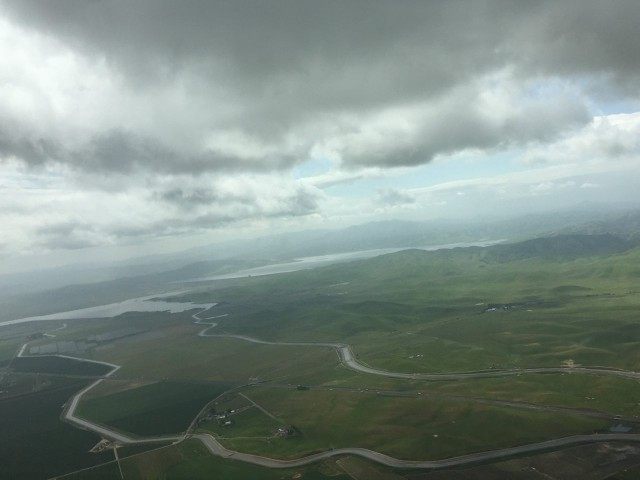When you open your pantry or refrigerator, what do you see? Tomatoes, oranges, lettuce; grains and nuts; chicken and beef; butter, milk, cheese and other dairy products, and yes … almonds – it’s very likely you are looking at products from the Central Valley, most likely grown in the Westlands Water District.
California’s Central Valley has more than 150 years of history following the Gold Rush. People from the Midwest, Europe, China, Mexico, and other parts of Latin America settled and brought their cultural and food influences, which became a staple of Californians’ dinner tables. They also brought their craft of farming, which became an essential part of California’s self-sufficient economy, providing jobs to people where the climate and soil make the land incredibly productive.
But California’s bounty is in jeopardy. Following many years of drought, farmers on the west side of the Central Valley were optimistic this year that a wet winter and spring would increase the amount of water allocated by the federal government.
Instead, the U.S. Bureau of Reclamation announced that Westlands would receive only 5% of its contract allocation.
This failed policy demands change. At minimum, Congress needs to pass legislation that requires federal regulators to maximize water allocations during periods of heavy rainfall – a reasonable policy that will help preserve California agriculture.
Water restrictions are due, in part, to environmental protections for at-risk habitats and endangered fish species. Like so many policies viewed through a single-issue lens, inflexibility in the execution of these protections is causing collateral damage with little consideration to the economic and human consequences of failed water policies. Ironically, rather than having a beneficial impact, the fish populations are now even more at risk.
Farming is a complex business and a labor of love. In a good year, with responsible water management, growers in Westlands are able to produce an annual average of more than $1 billion worth of food and fiber, generating approximately $3.5 billion in farm-related economic activities for surrounding communities.
These efforts support more than 50,000 people who live and work in the communities dependent on the agricultural economy. Our life’s work significantly impacts the economies of not just local communities, but the San Joaquin Valley, the State of California, and the nation as well. When anti-farming activists blithely block any reasonable policy that might allow farmers to receive more water, they should also be required to explain how communities would replace the jobs and income lost by failed water supply policies.
Equally concerning is that the lack of action on drought legislation will cause repercussions that have a permanent impact. My family has farmed in the Valley for almost 90 years; these last few years of drought have pushed us to our limit. We’ve fallowed 1,700 acres of tomatoes, garlic, onions, and garbanzo beans, and relied on costly and environmentally taxing groundwater pumping to maintain the rest of our land through the last two years of operating under a zero water allocation from the federal government.
It won’t just be farm communities impacted by today’s water status quo. Californians, who want homegrown organic foods, may have to settle for produce grown and imported from other countries. And taking Central Valley land out of production will also hurt U.S. consumers in general. According to U.S. Department of Agriculture Secretary Tom Vilsack, within 40 years, agriculture will have to increase by 70 percent globally to feed the world – and farmers will have to produce more food with less land and less water.
So enjoy the bounty of your pantry and fridge. But don’t take it for granted. Unless Congress acts quickly to allow water policy flexibility and provide some relief to farmers, California consumers may pay the price with changes they never expected.
Daniel Errotabere is a third generation farmer in the Westlands Water District. His family began farming in this area in the late 1920’s. He currently farms alongside his two brothers and their families in the west side of Fresno County. Their primary crops are tomatoes, garlic, onions, almonds and garbanzo beans.

COMMENTS
Please let us know if you're having issues with commenting.